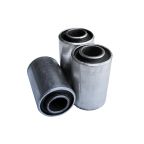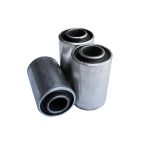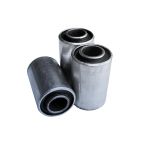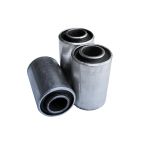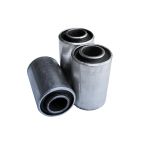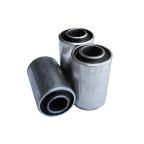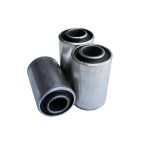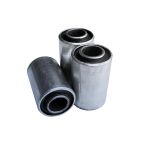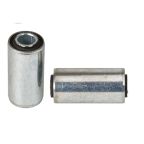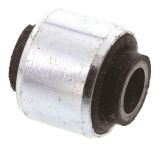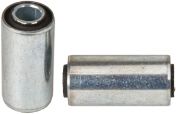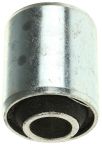- Automation & Control Gear
- Cables & Wires
- Enclosures & Server Racks
- Fuses & Circuit Breakers
- HVAC, Fans & Thermal Management
- Lighting
- Relays & Signal Conditioning
- Switches
- Batteries & Chargers
- Connectors
- Displays & Optoelectronics
- ESD Control, Cleanroom & PCB Prototyping
- Passive Components
- Power Supplies & Transformers
- Raspberry Pi, Arduino, ROCK, STEM Education & Development Tools
- Semiconductors
Bonded Bushes
Bonded bearings are anti-vibration bushes designed to provide protection from shock and vibration. They are often designed to avoid wear and remove the need for lubrication, ensuring low maintenance requirements.
How do bonded bearings work?
Bonded bearings work by eliminating high frequencies while supporting high loads during operation. They typically consist of two concentric sleeves with rubber bonded between them. The rubber is usually pre-stressed to give dynamic strength and maximum durability. They are designed to provide noise and vibration isolation, accommodate misalignment and protect from shock loads.
Types and uses of bonded bearings
Bonded bearings come in two main types: fully bonded and semi-bonded variants. Fully bonded bearings are made with rubber bonded to the inner and outer metal tubes. Semi-bonded types are usually manufactured with the rubber bonded to the inner tube and attached to the outer.
Bonded bearings are used in various applications including:
- Motor vehicles
- Flexible joints
- Earth-moving machinery
- Railway carriages
- Tractors and other agricultural machinery
- Vibratory screens
- Bulldozers
- Generators
- Vehicle suspension
